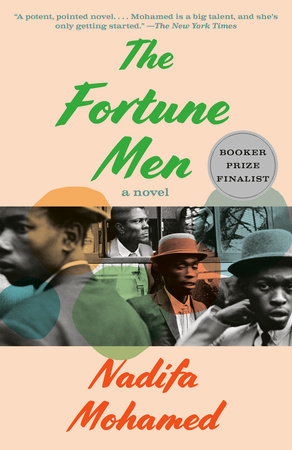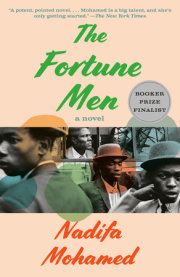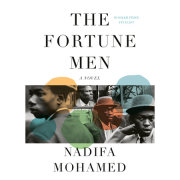Kow
[ One ]
Tiger Bay, February 1952
The King is dead. Long live the Queen.” The announcer’s voice crackles from the wireless and winds around the rapt patrons of Berlin’s Milk Bar as sinuously as the fog curls around the mournful street lamps, their wan glow barely illuminating the cobblestones.
The noise settles as milkshakes and colas clink against Irish coffees, and chairs scrape against the black-and-white tiled floor.
Berlin hammers a spoon against the bar and calls out with his lion tamer’s bark, “Raise your glasses, ladies and gentlemen, and send off our old King to Davy Jones’s Locker.”
“He’ll meet many of our men down there,” replies Old Ismail, “he better write his apologies on the way down.”
“I b-b-b-et he wr-wr-wr-ote them on his d-d-d-eathbed,” a punter cackles.
Through the rock ’n’ roll and spitting espresso machine Berlin hears someone calling his name. “Maxa tiri ? ” he asks as Mahmood Mattan pushes through the crowd at the bar.
“I said, get me another coffee.”
Berlin catches his Trinidadian wife’s waist and steers her towards Mahmood. “Lou, sort this troublemaker another coffee.”
Ranged along the bar are many of Tiger Bay’s Somali sailors; they look somewhere between gangsters and dandies in their cravats, pocket chains and trilby hats. Only Mahmood wears a homburg pulled down low over his gaunt face and sad eyes. He is a quiet man, always appearing and disappearing silently, at the fringes of the sailors or the gamblers or the thieves. Men pull their possessions closer when he is around and keep their eyes on his long, elegant fingers, but Tahir Gass—who was only recently released from Whit church asylum—leans close to him, looking for friendship that Mahmood won’t give. Tahir is on a road no one can or will walk down with him, his limbs spasming from invisible electric shocks, his face a cinema screen of wild expressions.
“Independence any day now.” Ismail gulps from his mug and smiles. “India is gone, what can they say to the rest?”
Berlin makes his eyes bold. “They say we got you by the balls, darkie! We own your land, your trains, your rivers, your schools, the coffee grains at the bottom of your cup. You see what they do to the Mau Mau and all the Kikuyu in Kenya? Lock them up, man and child.”
Mahmood takes his espresso from Lou and smirks at the exchange; he cares nothing for politics. While trying to straighten his cufflinks a drop of coffee runs over the rim and falls on to his brightly polished shoes. Grabbing a handkerchief from his trouser pocket, he wipes it off and buffs the stain away. The brogues are new and as black and sharp as Newfoundland coal, better shoes than any other fella here has on his feet. Three £1 notes burn away in his pocket, ready for a poker game; saved through missed lunches and nights spent without the fire, mummified in his blankets. Leaning over the bar, he nudges Ismail. “Billa Khan coming tonight?”
“Me come from the jungle? I wish I come from the jungle! I said to him, look around you, this is the jungle, you got bushes and trees everywhere, in my country nothing grows.” Ismail finishes his joke and then turns to Mahmood. “How would I know? Ask one of your crooks.”
Kissing his teeth, Mahmood throws the espresso down his throat and grabs his fawn mackintosh before stalking through the crowd and out of the door.
The cold air hits his face like a spade, and despite urgently forcing the jacket around his body the bitter February night takes hold of him and makes his teeth chatter. A grey smudge hovers over everything he sees, the result of a hot chink of coal flying from a furnace and into his right eye. A pain so pure that it had hoisted him up and backwards on to the cooling clinkers behind his feet. The clatter of shovels and devil’s picks as the other stokers came to his aid, their hands tearing his fingers from his face. His tears had distorted their familiar faces, their eyes the only bright spots in the gloomy engine room, the emergency alarm clattering as the chief engineer’s boots marched down the steel staircase. Afterwards, two weeks in a hospital in Hamburg with a fat bandage wrapped around his head.
That smudge and a bad back are the only physical remnants of his sea life. He hasn’t boarded a ship for near to three years; just foundry work and poky little boilers in prisons and hospitals. The sea still calls, though, just as loudly as the gulls surfing the sky above him, but there is Laura and the boys to anchor him here. Boys who look Somali despite their mother’s Welsh blood, who cling to his legs calling “Daddy, Daddy, Daddy” and pull his head down, mussing up his pomaded hair for forceful kisses that leave his cheeks smelling of sherbet and milk.
The streets are quiet but the news of the King’s death drifts from many of the low-slung wind-blown terraces he passes. Each wireless set relaying the broadcast discordantly, either a second ahead or delayed. Passing the shops on Bute Street, he finds a few lights still on: at Zussen’s pawnbroker’s where many of his clothes are on hock, at the Cypriot barbershop where he has his hair trimmed and at Volacki’s where he used to buy seafaring kits but now just bags the occasional dress for Laura. The tall grand windows of Cory’s Rest are steamed up, with figures laughing and dancing behind the leaded glass. He peeks his head through the door to check if some of his regulars are there, but the West Indian faces around the snooker table are unfamiliar. He had once belonged to this army of workers pulled in from all over the world, dredged in to replace the thousands of mariners lost in the war: dockers, tallymen, kickers, stevedores, winch men, hatch men, samplers, grain porters, timber porters, tackle men, yard masters, teamers, dock watchmen, needle men, ferrymen, shunters, pilots, tugboat men, foyboatmen, freshwater men, blacksmiths, jetty clerks, warehousemen, measurers, weighers, dredgermen, lumpers, launch men, lightermen, crane drivers, coal trimmers, and his own battalion, the stokers.
Mahmood turns away from the wreathed and porticoed splendour of Cory’s Rest towards the docks, from where a red mist tints the raw, uncooked sky. He enjoys watching the nightly, industrial spectacle: the dirty seawater appearing to catch fire as vats of rippled, white-hot furnace slag from the East Moors Steelworks tip into the lapping evening tide. The railway on the foreshore bank clanking and screeching as carts shoot back and forth between the billowing steelwork chimneys and the angry, steaming sea. It’s an eerie and bewitching sight that catches his breath every time; he half expects an island or volcano to spit out from that bubbling, hissing stretch of petrol-streaked water, but it always cools and returns to its morose, dark uniformity by morning.
The docks and Butetown cover only a square mile but for him and his neighbors it’s a metropolis. Raised up from marshland the century before, a Scottish aristocrat built the docks and named the streets after his relatives. Mahmood had heard a rumour that the world’s first million-pound cheque was signed at the Coal Exchange. Even now, in the morning, a different calibre of men come bowler-hatted to work at the Mercantile Marine Office or the Custom House. At both the Marine Office and Seaman’s Union you know which door to use if you don’t want trouble, and this goes for the labouring white men as well as black. Beyond the financial district, the neighbourhood is for everyone, all of them hemmed in and pushed close by the railway tracks and canals cutting them off from the rest of Cardiff. A maze of short bridges, canal locks and tramlines confuse the new visitor; just before his time, Somali sailors would wear the address of their lodging house on a board around their neck so that passers-by could help navigate them. The canals are a playground to young children and once, when two went missing, Mahmood had spent a blue, insomniac night searching the muddy water for any sight of them. They had been found in the morning—one white, one black, both drowned. But his boys are still too young to go wandering, alhamdulillah. One day, when they are older, he will show them around this port town with its Norwegian Church and kosher abattoir, its cranes, booms and smoking chimneys, its timber ponds, creosote works and cattle yards, its three broad thoroughfares—Bute Street, James Street, Stuart Street—crisscrossed with ever-narrowing terraces. The flags and funnels of the world’s shipping fleets crowding the pierheads and sprawling across the dock basins.
Mahmood silently plans the future but now, defeated by the icy chill sneaking itself through the gaps between his coat buttons, he decides against another night of poker and heads home to Adamsdown, where the real fire in his life burns.
Violet collapses heavily into the wooden chair and waits for Diana to set the table. “Where’s Gracie?”
“Just finishing up her extra schoolwork, she’ll be down in a minute.”
“I think she’s working too hard, Di, her little face looks haggard.”
“Don’t be ridiculous. She is barely putting pen to paper, spent most of the evening going through my high heels and jazz records. I went up to chivvy her along and her face was smeared in Max Factor Sunset Shine. She thinks she’s set for Hollywood, that one.”
“The cleaner said that when she was changing her bed sheets she found a photo of Ben in his flight suit under her pillow.”
“I know.” Her smile stiffens and she turns her back to Violet.
Violet squeezes Diana’s forearm. “Strength, Sister. Koyekh.”
“Come on down, Grace, we’re waiting for you!” Diana shouts up the stairs, ripping her apron off and folding it over the back of her chair. The pounds she put on over the Christmas holiday still show on her muscular body and her green wiggle dress strains across the back. Her black hair folds into loose waves over her shoulders; she needs a haircut but Violet likes it like this, it gives her sister a Mediterranean look.
“You are a perpetual motion machine.”
“Not by choice, I tell you. Maggie got Daniel to drop off the chicken as I had so many customers earlier. Every last one of them wanted to put his money on a horse with some kind of association with the King: ‘His Majesty,’ ‘Balmoral,’ ‘Buckingham Palace.’ I don’t know if it’s their way of paying their respects or just superstition but I’ve never seen anything like it.”
“I saw one of them cash his advance note of pay with me and then go through to you. A fool and his money.”
“Oh, that’s poor Tahir, he’s not right in the head. One of the sailors told me that he was ‘misused,’ as they say, by Italian soldiers in Africa. He tells me he’s the King of Somalia and killed thousands of men in the war.”
“Which horse did he put money on?”
“The Empress of India,” Diana says, splitting her red-lipped mouth with a loud laugh. “I suppose he thinks that’s his wife.”
“Goodness gracious. Let me go wash my hands quickly.” Violet smiles, looking over the spread on the table: roast chicken, pickled gherkins, boiled potatoes, carrots with red onion and beetroot, and a pile of poppyseed bialys. She returns from the sink and slips her stockinged feet out of her black orthopedic tie-ups, stretching her serpentine spine, scoliosis having made a puzzle out of her ribcage and shoulder blades. She is paler than both Diana and Maggie, her face their father’s down to the deep furrows on either side of her mouth, a nun-like purity to both her dress and to her pink-cheeked face. Her hair is still dark, but the promise of a white widow’s peak suggests itself above her sparse eyebrows. She gives the impression of someone who has always looked older than her real age and is now at the point of inhabiting a body tailored to her: the modest Cardiff shopkeeper.
“Turn on the wireless, Di, I want to hear the rest of the news. Imagine Princess Elizabeth—sorry, Queen Elizabeth—getting the liner back, knowing she has to give up her calm little life with her husband and babies to take the throne.”
“No one is making her. She can stay in Kenya and declare the end of the monarchy for all I care.”
“You have no sense of duty. How could she do that when a whole country, a whole empire, is waiting for her?”
“You would say that, you daddy’s girl. You make me laugh, Violet, Da leaves you this shop and you take it as seriously as if he had left you the entire world. I can imagine your face in the papers today, talking about your solemn pledge to rule 203 Bute Street to the best of your power, with the help of Almighty God.”
“This shop is my life, and if I had just sold it in ’48 what good would that have done? A widow, a spinster, and a little girl, jumping from home to home and job to job.”
“We could have gone to London or New York.”
“To start again? No, Diana, you’re still young enough to get married and have more children. I couldn’t.”
“Of course you could. Maybe not the kids, but you could certainly get married.”
“Should I go rooting through the rascals and charlatans who would only want me for my business?”
“Fine, fine. Your choice.” Diana raises her hands in surrender and then hollers at the top of her voice, “Grace! Get down here this instant.”
“Coming!”
“Just come! Aunty Violet is tired, and the food is getting cold and slimy.”
Thuds pound down the winding staircase and then there she is—the centre of both of their worlds—four feet five of undiluted hope and promise.
She kisses Diana and Violet on their cheeks and then wriggles into her chair. Grace’s soft round face is changing shape, Ben’s square jaw pushing itself out and her nose taking on a fine Volacki curve. Ten summers, ten winters without him, thinks Diana, casting a glance over her daughter’s freckled face.
“Did you get any of your exam practice done, petal?” Violet asks her, cutting into the chicken and putting three slices on to Grace’s plate.
Grace takes a big bite from a bialy and smiles mischievously. “Well, Aunty, I did start to, but then . . .”
“Hmm?” Diana rolls her eyes. “My make-up bag proved more interesting?”
“You shouldn’t have left it out, Mam, you know how easily distracted I am.”
“You’re a cheeky one, Gracie,” laughs Violet.
The wireless announcer forms a fourth companion at the table; a rich male voice from London that sounds clothed in tails and a white bow tie and dress shoes from Bond Street. The tinkle of their knives and forks merges with sonorous choral music and the clang of bells ringing, from Big Ben to a medieval kirk at the furthest reaches of the Hebrides. The land beyond their dining room is in mourning, the stars frozen in their stations, the moon shrouded in black.
Copyright © 2021 by Nadifa Mohamed. All rights reserved. No part of this excerpt may be reproduced or reprinted without permission in writing from the publisher.








